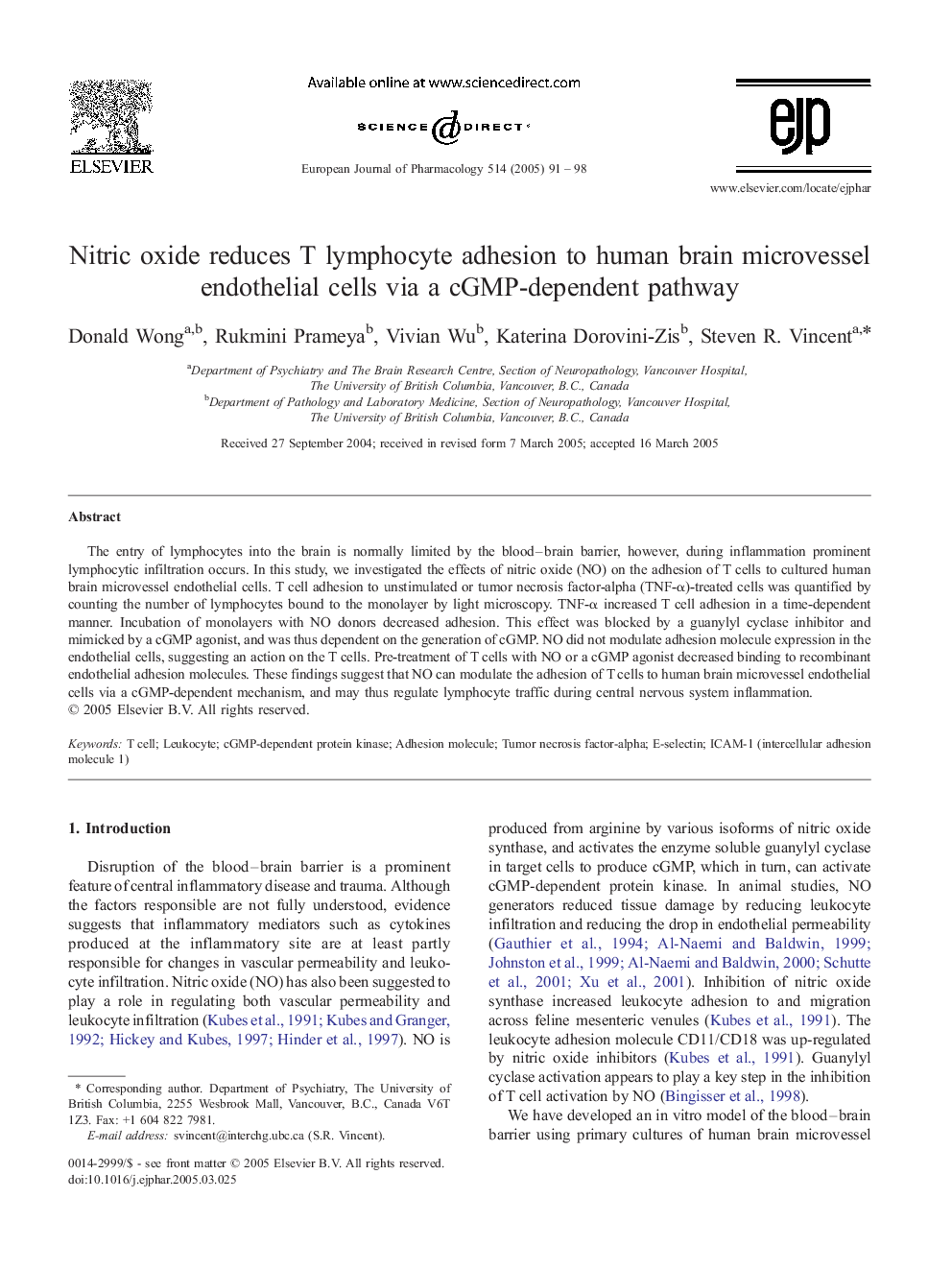| Article ID | Journal | Published Year | Pages | File Type |
|---|---|---|---|---|
| 9921324 | European Journal of Pharmacology | 2005 | 8 Pages |
Abstract
The entry of lymphocytes into the brain is normally limited by the blood-brain barrier, however, during inflammation prominent lymphocytic infiltration occurs. In this study, we investigated the effects of nitric oxide (NO) on the adhesion of T cells to cultured human brain microvessel endothelial cells. T cell adhesion to unstimulated or tumor necrosis factor-alpha (TNF-α)-treated cells was quantified by counting the number of lymphocytes bound to the monolayer by light microscopy. TNF-α increased T cell adhesion in a time-dependent manner. Incubation of monolayers with NO donors decreased adhesion. This effect was blocked by a guanylyl cyclase inhibitor and mimicked by a cGMP agonist, and was thus dependent on the generation of cGMP. NO did not modulate adhesion molecule expression in the endothelial cells, suggesting an action on the T cells. Pre-treatment of T cells with NO or a cGMP agonist decreased binding to recombinant endothelial adhesion molecules. These findings suggest that NO can modulate the adhesion of T cells to human brain microvessel endothelial cells via a cGMP-dependent mechanism, and may thus regulate lymphocyte traffic during central nervous system inflammation.
Keywords
Related Topics
Life Sciences
Neuroscience
Cellular and Molecular Neuroscience
Authors
Donald Wong, Rukmini Prameya, Vivian Wu, Katerina Dorovini-Zis, Steven R. Vincent,
